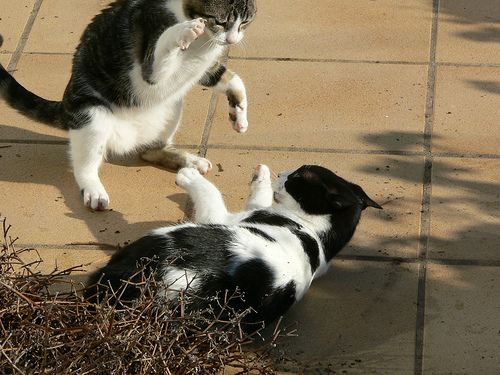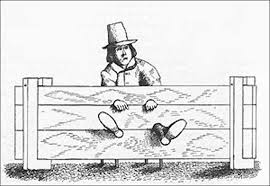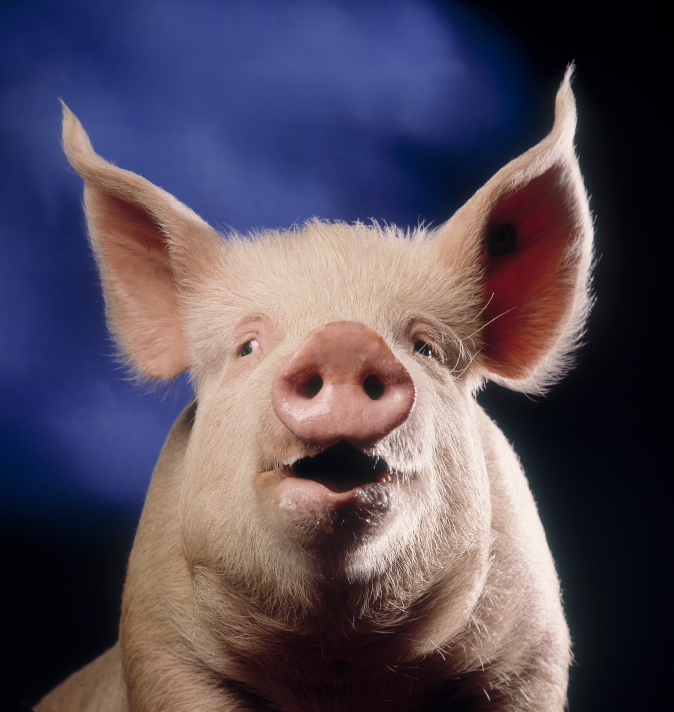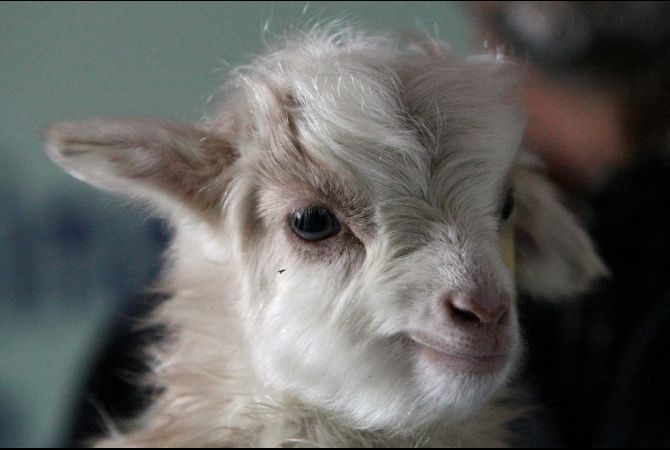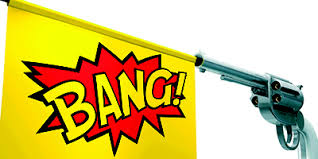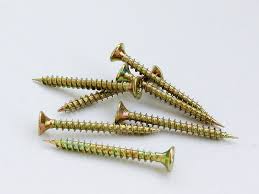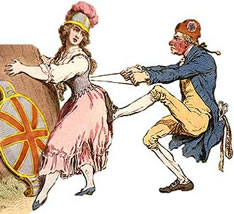DYK: Did you know? Knuckle under means to give way or submit. The word knuckle in the 18th century, was used used to mean ‘acknowledge oneself beaten; submit to another’s authority’ Dyche and Pardon, in their A dictionary of all the words commonly us’d in the English tongue, 1740, defined ‘knuckle’ like this: “Knuckle or knuckle down: […]
Did You Know?
DYK: the idiom “laughing stock” has an unclear source
The source of the idiom – LAUGHING STOCK is unclear. Stocks were a means of punishment in use at the time the phrase was coined, by which people were tortured or ridiculed. Victims were held by having their ankles, and occasionally the wrists too, trapped in holes between two sliding boards. The punishment, although not as harsh […]
DYK: Don’t buy a pig in a poke. Where did the saying come from?
Pig in a poke means an offering or deal that is foolishly accepted without being examined first. A poke is a sack or bag. It has a French origin as ‘poque’ and, like several other French words, its diminutive is formed by adding ‘ette’ or ‘et’ – hence ‘pocket’ began life with the meaning ‘small […]
DYK: Are you part of the upper crust?
In olden days, bread was put, as a raw lump of dough, straight into the bread oven by the fireplace. There was no bread tin as today. It just sat on the floor of the oven. When the oven was heated by the fire, it became very hot at the bottom. After the bread finished […]
DYK: Handle with kid gloves – what does it really mean?
Handle with kid gloves means to handle a situation, or a person or an object, delicately and gingerly. The phrase comes from the 1730’s when kid gloves were made from the skin of a young goat. They were not intended for use when you were working and wearing kid gloves usually indicated that the wearer […]
A bigger bang for your buck – can you guess who first used this phrase?
Today ‘A Bigger Bang for your Buck’ means that you get more for your money. However, most sources credit US Defense Secretary Charles Wilson as the source of the expression ‘a bigger bang for your buck’ in reference to a new policy of using nuclear weapons in any conflict bigger than what they called ‘a brush-fire […]
DYK: Why do we use the phrase ‘have a screw loose’?
Have a screw loose – means something is wrong with the person or mechanism. The phrase comes from the cotton industry and dates back as far as the 1780s, when the industrial revolution made mass production of textiles possible for the first time. Huge mills sprang up to take advantage of the new technology (and the […]
DYK: The hair of the dog that bit you really refers to a dog that bit you!
The hair of the dog that bit you means a small measure of drink, intended to cure a hangover. The fuller version of this phrase, that is, ‘the hair of the dog that bit me’, gives a clue to the source of the name of this supposed hangover cure. The phrase derives from the mediaeval belief […]
DYK: Cut and Run – Sometimes it’s not cowardly but is the best action
Cut and run is a phrase used in the context of a cowardly defeat but actually the phrase ‘Cut and Run’ is a nautical term. In an emergency rather than haul up an anchor the sailors would cut the anchor cable then run with the wind. In nautical usage however the term does not necessarily […]
DYK: Are you straight-laced?
The phrase Straight-laced was originally STRAIT laces. The old English word strait meant tight or narrow. In Tudor times buttons were mostly for decoration. Laces were used to hold clothes together. If a woman was STRAIT laced she was prim and proper. VINEGAR OF THE FOUR THIEVES: Recipes & curious tips from the past Check […]
